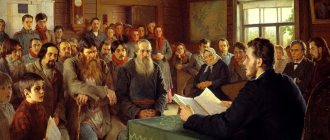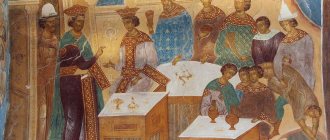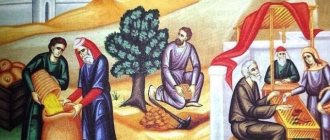“Then the Kingdom of Heaven will be like ten virgins, who took their lamps and went out to meet the bridegroom. Of these, five were wise and five were foolish. The foolish ones took their lamps and took no oil with them. The wise took oil in their vessels along with their lamps.” Matt. 25:1-4.
All ten walked towards the groom. They said goodbye to the world in order to seek the things above where Jesus sits. (Col. 3:1-2) They all took their lamps with them. However, the wise virgins took oil with them in their vessels, while the foolish virgins did not think of this.
“Command the children of Israel to bring you pure oil, beaten for illumination, so that the lamp may continually burn.” Leviticus 24:2.
The lamps are a confession of our faith. (Matt. 10:27; Matt. 5:15) In order for them to shine, they need oil. In order to get oil, you have to crush something. We really lack lamps that could shine - life and teaching. If I say that I want to follow in the footsteps of Jesus, who “though he was reviled, did not revile again” (1 Peter 2:21-23), then my lamp stops shining if I begin to return slander to slander. In order not to slander something in me must be crushed. My self-will, my honor. Then the lamp will shine.
There was also a little oil in the lamps of the foolish virgins, because they say: “Our lamps are going out!” That is, we see that something was crushed in them too.
Works of the flesh.
“The works of the flesh are known; they are: adultery, fornication, uncleanness, lasciviousness, idolatry, sorcery, enmity, quarrels, envy, anger, strife, disagreements, (temptations), heresies, hatred, murder, drunkenness, disorderly conduct and the like.” Gal. 5:19-21.
All the above cases and similar ones are obvious cases. And everyone knows that this is a sin. If we do this, then it will not be easy to believe our Christianity. All ten virgins were virgins, and all ten crushed olives within themselves so that they might have oil. However, the five wise virgins took care not only that their lamps burned there and then, but also about the oil that they took with them.
These “works of the flesh” will manifest themselves in everyday life, in various trials when we are among people. That is when our lamps should shine. The five foolish virgins also deny themselves in the circumstances of life, content with the fact that their lamps shine and people cannot condemn them. However, they do not think at all about the fact that the meager amount of oil they extract will quickly burn out. Wise virgins collect oil in their vessels. When the trials come to an end they test themselves. In silence before the face of God, they see themselves, their human nature, which they crush. Now they do not emit light for anyone, but collect oil in vessels. This is the hidden life with Christ in God.
Foolish virgins are happy that people cannot condemn them, since they do so much good in external things. They don't know a moment's peace. Peace and tranquility in the face of God? No. There's no time for that. In this they are like Martha. Despite her zeal in serving Jesus, she remained turned to the earth. She did not understand Mary, who sat at the feet of Jesus and collected oil into her vessel.
Liturgical use
in the Catholic Church, the parable is the Gospel reading for the 32nd Sunday Ordinary Time in Cycle A; In an unusual form of the Roman rite (Triangular Mass), the parable is a Gospel reading for the Masses of the Virgins and Virgin Martyrs.
in the Armenian Orthodox Church the parable is the main theme of Holy Monday. A special church service reenacting the parable of the ten virgins takes place on Tuesday evening, December 15th. Holy Week.[ quote needed
]
In the Syriac Orthodox Church, a parable is used to commemorate the Sunday Vespers service of Nahire. Nahir symbolizes our life in accordance with the ten virgins, who only through a life of dedication, vigilance, fasting and prayer can be ready for the Bridegroom himself.
The parable represents the reading of the Gospel on the 27th Sunday after Trinity in the traditional Lutheran lectionary. in the Revised Common Lectionary, the parable is read in Proper 27 (32nd Sunday in Ordinary Time)
.[19]
Collect oil in vessels.
You collect oil in your vessel when you put aside the sin that burdens your conscience. The desire to seek honor, the vanity of the mind, the desire to show oneself in eloquence, to gain recognition from people, greed - all these things that obviously must be crushed and put aside so that the lamp can shine. And then the five foolish virgins will be happy. One who is happy with the spiritual state he or she is in is like these foolish virgins, no matter what level you are at. However, the Spirit penetrates even deeper. If you want to collect oils in your vessels, then you must come to inner silence in order to hear the voice of the Spirit. He will show you your tendency to seek honor, recognition from people, etc. in a deeper way than you imagined yourself. Then you must walk by the Spirit (Gal. 5:25) acknowledge what you see in yourself and break it. The five wise virgins like this life and fill their lamps and vessels with oil.
People see only the lamps; the vessels are hidden to them. Therefore, they do not see the difference between the virgins, despite the fact that they sometimes notice that some do not have enough oil in their lamp and it is not able to emit clear light.
Victory over sins, upon which the Spirit shines His light in the hidden life, means that you do what you do not to be noticed and seen by others, but because you love Jesus, and everything you do, you do for His sake. Then you are truly wise. Then you will be among those whom Jesus will take with Him when He comes like a thief in the night to take with Him those who are ready. You will put on white robes and walk with Jesus, and He will confess your name before His Father and His angels.
End of conversations. The Last Parables (Matthew 25)
Estimated reading time: 11 minutes.
The previous chapter ended with a parable dedicated to the end of times - about those who were entrusted to take care of people and who neglected this assignment, deciding that there was enough time ahead and the master would not come soon. This chapter begins with a parable on the same theme, but much more famous; I think, moreover, that it is even more burning, because for all its prevalence in literature (words about wise virgins and about a burning lamp are found quite often) - in church art it is depicted incredibly sparingly (it was found in sculptures on the facade of a cathedral in Western Europe and literally two paintings in Russian churches). It is difficult and alarming for us to perceive it, because we are not talking about “enemies” (we have it simple: enemies are everyone who is “not us”, and we are those who are not enemies; so complete freedom in definitions ), but about those who have already been called. That is, about those to which we belong. That's probably why it's so uncomfortable.
Parable of the Ten Virgins (miniature from the Rossan Gospel), 6th century.
“Then the kingdom of heaven will be like ten virgins, who took their lamps and went out to meet the bridegroom. Of these, five were wise and five were foolish. The foolish ones took their lamps and took no oil with them. The wise, together with their lamps, took oil in their vessels. And as the groom slowed down, everyone dozed off and fell asleep. But at midnight a cry was heard: behold, the groom is coming, go out to meet him. Then all the virgins stood up and trimmed their lamps. But the foolish said to the wise, Give us your oil, for our lamps are going out. and the wise answered: so that there is no shortage for both us and you, you better go to those who sell and buy for yourself. And when they went to buy, the bridegroom came, and they that were ready went in with him to the wedding, and the door was shut; Afterwards the other virgins came and said: Lord! God! open to us. He answered and said to them, “I don’t know you.” Watch therefore, for you know neither the day nor the hour when the Son of Man will come.”
It must be said that the supply of oil for the lamps is a completely everyday matter and commonplace for listeners. I once saw a home Hanukkah lamp, and it was not a candlestick at all: lamps were soldered to a silver plate mounted on a stand, more similar to candlesticks in a church (by the way, they explained to me that candles can also be inserted). And below is a hook on which hangs a jug for oil. That is, oil lamps are a close, understandable image. The ceremonial entrance of the groom is also a custom, as is the fact that the guests are expecting him. But here’s what attracts attention: we are told to “keep awake,” but the wise virgins slept just as much as the foolish ones. They just had oil, and, having woken up when the groom arrived, they were immediately ready to follow him. Thus, their wakefulness consisted of forethought and readiness. And I really like the idea of Vladyka Anthony: we come to the Judgment in the state in which it found us, so that if you have time to wake up, that means you are awake. By the way, the now widespread tendency to praise death, which comes very, very quickly and unnoticed (best of all in a dream), the so-called “easy death,” strongly contradicts Christian views: for us, “a painless, shameless, peaceful death” for which we pray - this is the absence of unbearable pain (by the way, there is a cessation of pain even in very severe patients - at least for a few minutes), in cleanliness and neatness, with spiritual guidance and surrounded by loving or at least attentive people.
Isn’t the image of a burning lamp connected with the words “Do not quench the Spirit,” spoken by the Apostle Paul in a very important and significant sequence: “See to it that no one repays evil for evil; but always seek the good of each other and everyone. Always be happy. Pray without ceasing. In everything give thanks: for this is the will of God for you in Christ Jesus. Don't quench the spirit. Do not despise prophecies” (1 Thessalonians 5:15-20). Isn’t it true, we can’t even discuss this sequence, but simply accept it?..
And now it’s time for us to be puzzled: it turns out that they invited, as it were, their own people to a wedding feast? And they didn’t let you in? Because of such little things? Wise maidens are also good, they spared oil...
It is difficult for us to measure Divine justice by our own criteria. We are unlikely to be able to fully understand it while we are alive and in the system of our addictions. As a matter of fact, developing sensitivity to the will of God is a task for life. But the Good News is good for this reason, to serve as a support for us in this great matter (great, because our stay in eternity depends on it). True, the Gospel is not a railway manual or a collection of recipes; it gives direction, and we must move ourselves.
The next parable tells the same story: how will the Son of Man act at His coming?
“For He will act like a man who, going to a foreign country, called his servants and entrusted them with his property: and to one he gave five talents, to another two, to another one, to each according to his strength; and immediately set off. He who received five talents went and put them to work and acquired another five talents; in the same way, the one who received two talents acquired the other two; But he who received one talent went and buried it in the ground and hid his master’s money.”
Talent is an ancient measure of the weight of precious metals, very significant; True, its value was decreasing, but there is some reason to say that even during the earthly life of Jesus, a silver talent was 50 kg of silver, and a gold talent was 10 times heavier. In short, unimaginable amounts even in silver.
Do we pay enough attention to the fact that the master distributed talents not according to his own arbitrariness, but according to the abilities of those gifted? Meanwhile, in the Old Testament it is mentioned more than once that God is like a potter working with clay (and clay is a symbol of the dust of the earth from which man is created), and the quintessence of this cross-cutting metaphor is the statement in Romans 9:21: the potter, who from He makes vessels from the same clay for both high and low use, and has power over clay. That is, in Scripture there is a prevention of self-exaltation, the same one that is now so popular under the pseudonym of self-realization. And the one who buried the talent, with such consideration, may turn out to be a rabid ambitious person with unsatisfied pride. Meanwhile, he also received his talent. But it wasn't enough for him. And he, if you think about it, joins the ranks of the dissatisfied: the elder brother from the parable of the prodigal son, the workers of the first hour, who grumbled that the workers of the eleventh hour received their reward... We can add other historical and modern examples.
Parable of the Talents. 16th century engraving
It is not surprising that thanks to this parable, the meaning of the word “talent” branched off, so to speak, from the original designation of the monetary unit and began to refer to the gifts of God - to talent. I really like how this is discussed in one modern book - in “Archia” by Vyacheslav Butusov. There, a folklore and artistic retelling of the parable begins with the words “we are simply designed to be talented” and unfolds as the story of three royal advisers left to rule in the absence of the king. The first received three talents: beauty, health, intelligence. The second is beauty and health, and the third is only beauty. The first gave his talents to children, the second to old people, and the third kept his beauty to himself. And the children grew up and increased their beauty, health and intelligence. The old people died and bequeathed their knowledge, wisdom and experience to the donor, in addition to health and beauty. And the third adviser became a decrepit old man, having lost his beauty. One can, of course, ask, what could he do with her? - You never know; I could, for example, give it to a kind, ugly woman, and she would get married and give birth to kind and beautiful children. Moreover, this mad loser was rude to the king in his heart, admitting that he always disliked him and considered him evil and cruel.
Here is a clear illustration of the refraction of the meaning of the Gospel in Christian culture. Let's return to the original text.
“After a long time, the master of those slaves comes and demands an account from them. And the one who had received five talents came and brought another five talents and said: Master! you gave me five talents; I purchased the other five talents with them. His master said to him: Well done, good and faithful servant! You have been faithful in small things, I will put you over many things; enter into the joy of your master."
Two small, but apparently significant details: the master calls the slave “good,” emphasizing that he not only showed ingenuity, but also acted out of his heart, out of love, and invites him to “enter into joy,” which again allows you to see spiritual unity in goodness.
“The one who had received two talents also came up and said: Master! You gave me two talents, and behold, I acquired the other two talents with them. His master said to him: Well done, good and faithful servant! You have been faithful in small things, I will put you over many things; enter into the joy of your master."
The general atmosphere of joy and goodness is expanding, especially since the gentleman does not make any distinction between the “five-talented” and the “two-talented”: everyone received according to their strength, everyone acted as best they could, everyone justified their hopes - now they are equal.
“The one who had received one talent came up and said: Master! I knew you that you were a cruel man, reaping where you did not sow, and gathering where you did not scatter, and, being afraid, I went and hid your talent in the ground; here's yours. His master answered him: “You wicked and lazy servant!” You knew that I reap where I did not sow, and gather where I did not scatter; Therefore, you should have given my silver to the merchants, and when I came, I would have received mine with profit; So, take the talent from him and give it to the one who has ten talents, for to everyone who has it will be given and he will have an abundance, but from the one who does not have, even what he has will be taken away; but throw the worthless slave into outer darkness: there will be weeping and gnashing of teeth.”
And where does one who has not lived up to even modest expectations begin his speech? With insults. Alas, this is so human: in the absence of repentance, the feeling of guilt is transformed into hostility towards the one to whom one is guilty. Considering the gentleman to be unjustifiably cruel, the man of little talent thereby decided that he had the right to neglect the task. A questionable decision, to be sure. And quite reasonably, the gentleman objects that since he is considered cruel, then it would be possible (if there is no skill) to transfer the talent to those who know how to handle it (note that both material and ideal understanding “pass” here equally). So the person fully demonstrated both lack of love and short-sightedness. This is exactly what the punishment is for.
The parable ends with an emphasis on attracting attention: “Having said this, he proclaimed: whoever has ears to hear, let him hear!” And then comes the most important thing: the last parable in the Gospel of Matthew, the parable of the Last Judgment, the fear of which so darkens human consciousness that it is useful to pay close attention to what actually entails reward and what entails punishment.
“When the Son of Man comes in His glory and all the holy angels with Him, then He will sit on the throne of His glory, and all nations will be gathered before Him; and will separate one from another, as a shepherd separates the sheep from the goats; and He will put the sheep on His right hand, and the goats on His left. Then the King will say to those on His right hand: Come, you blessed of My Father, inherit the kingdom prepared for you from the creation of the world: for I was hungry, and you gave me food; I was thirsty and you gave me something to drink; I was naked and you clothed Me; I was sick and you visited Me; I was in prison, and you came to Me. Then the righteous will answer Him: Lord! when did we see you hungry and feed you? or to the thirsty and gave them something to drink? when did we see you as a stranger and accept you? when naked and clothed? When did we see You sick, or in prison, and came to You? And the King will answer them, “Truly I say to you, just as you did it to one of the least of these brothers of Mine, you did it to Me.”
Here, with final directness, it is said that the purpose of Christ (and thereby the purpose of the Judgment) is the restoration of humanity to the Kingdom for which it was destined from the creation of the world. So why are they honored with the Kingdom? - for helping people, and this agrees very well with the words that he who does not love his neighbor cannot love God. Two things attract attention: firstly, the righteous have no idea that they were doing godly deeds, and did not even think that what they were doing was considered good by God and that it was worthy of reward. And secondly, there is no talk here of everyday asceticism. And really, do we fast for God? - no, to cleanse the body, which also contributes to the enlightenment of the soul and mind. And we pray in order to acquire the skill of striving for God and for Communion with God, that is, we again need this. In the words of Scripture and Tradition, we ask to establish a pure heart in us and strengthen the “spirit of rights” - again, why? So that we can be capable of life in the spirit, that is, life in God and with God. Yes, and we receive communion in order to unite with Him; True, in this case we can say that the All-Merciful Lord wants this, because it restores the picture of the unity of humanity in God. And the Savior warns us that not everyone who says to Him “Lord, Lord,” that is, who abundantly pronounces the words of prayer, will be accepted by Him into the Kingdom (see Matthew 7:21).
“Then He will also say to those on the left hand: Depart from Me, you cursed, into the everlasting fire prepared for the devil and his angels: for I was hungry, and you gave Me no food; I was thirsty, and you gave Me no drink; I was naked, and they did not clothe Me; sick and in prison, and they did not visit Me. Then they too will answer Him: Lord! when did we see You hungry, or thirsty, or a stranger, or naked, or sick, or in prison, and did not serve You? Then he will answer them, “Truly I say to you, just as you did not do it to one of the least of these, you did not do it to Me.” And these will go away into everlasting punishment, but the righteous into everlasting life.”
…How vital it is for us to read the Good News—truly like bread.
In art
This parable has been a popular subject for painting, sculpture, music and drama.
Friedrich Wilhelm Schadow,
Parable of the Wise and Foolish Virgins
, 1838–1842 (detail), Städel Museum, Frankfurt am Main.
Painting
The parable has been depicted in several paintings, including altarpieces in Northern Europe. A recent example is from 1954 by Tove Jansson. In the 19th century, artists of the Nazarene movement also took up this topic.
Sculpture
Three wise virgins appear with Christ at the Strasbourg Cathedral.
Sculptures of wise and foolish virgins were a common motif in medieval church architecture in Europe, especially for decorating doorways, and carvings depicting them appear in many medieval churches and cathedrals of the Gothic style, including:
- Amiens Cathedral
- Auxerre Cathedral
- Laon Cathedral
- Notre Dame Cathedral
- Notre Dame Cathedral, Reims
- Strasbourg Cathedral
- Erfurt Cathedral
- Magdeburg Cathedral
Virgins are also depicted on the cathedrals of Switzerland and other countries; The portal leading to the main church of Hovhanavank (1216–1221) in Armenia contains carved scenes from the parable of the wise and foolish virgins.
The ubiquity of such sculptures inspired a fictional account: the carvings on the doors of Kingsbridge Cathedral in Ken Follett's novel The World Without End
, set in the Late Middle Ages.
Music
The third stanza of Wachet auf, ruft uns die Stimme
, here as the final movement of Bach's chorale cantata
This parable is inspired by several religious music compositions. His message was formulated in the hymn, "Wachet auf, ruft uns die Stimme", to Philip Nicholas, which Johann Sebastian Bach used for his chorale cantata Wachet auf, ruft uns die Stimme
, BWV 140. The parable has become the theme of several hymns, including the 19th-century hymn "Here Comes the Bridegroom" by George Frederick Root, which begins:
Our lamps are lighted and burning, Our clothes are white and clean; We lingered behind the Groom, Oh, can we come in?
The Wise Maidens is a one-act ballet written in 1941 by William Walton, based on the music of Johann Sebastian Bach, with choreography by Frederick Ashton.
"Keep Your Lamp Good and Burning" is a gospel blues song based on a parable. Recorded by artists such as Blind Willie Johnson, Reverend Pearly Brown, and Reverend "Blind" Gary Davis.
Non-religious music has also used parable as a theme, such as the Swedish composer's ballet The Wise and Foolish Virgins. Kurt Atterberg (1887–1974), painted in 1920.
Reference is made to a parable in Johnny Cash's 2002 song "A Man Comes Around," which is loosely based on the Bible.
In the 1974 album Genesis - The Lamb Lies on Broadway
, a reference to the parable is made in the song
Carpet Sliders
: "and the wise and foolish maidens giggle, and their bodies glow brightly."
American composer Emily Freeman-Brown also composed an oratorio based on the parable.[ citation needed
]
Drama
Since early Christian times, the story of the ten virgins has been told as a mystery. Saint Methodius painted The Banquet of the Ten Virgins
,[20] mystery in Greek.
Sponsus
, a mid-11th century play, was performed in both Latin and Occitan.
The German play Ludus de decem virginibus
was first performed on May 4, 1321. There was also a Dutch play from the late Middle Ages.
Recommendations
Notes
- The parable of the lost coin follows the parable of the lost sheep and this parable follows the parable of the faithful servant.
Quotes
- Barton and Muddiman 2001, para. 878.
- ^ a b c d f f
France 1985, paragraph 349. - ^ a b c
Witherington 1987, paragraph 43. - Nolland 2005, para. 1006.
- ^ a b c d
Barry 1911. - ^ a b c
Erman 2016, p. 108. - Donahue 2004, para. 134: We never know whether they have found him, but when they return the feast has already begun and the door is locked."
- Keener 2009, para. 597.
- Pentecost 1998, paragraph 150.
- Through 2007, paragraph 122.
- Resseguie 2005, pp. 206-208.
- Louis of Granada, A Sinner's Guide
, 1555. - Kimball 1993, para. 255.
- Henry 2010.
- Anon. 1983, paragraph 24.
- Lambrecht 1992, para. 204.
- Snodgrass 2008, para. 505.
- Funk and Hoover 1993, para. 254.
- "Year A - Season after Pentecost - Correct 27 (32)." Revised Common Lectionary
- via Vanderbilt Divinity Library. - Methodius 1885.









